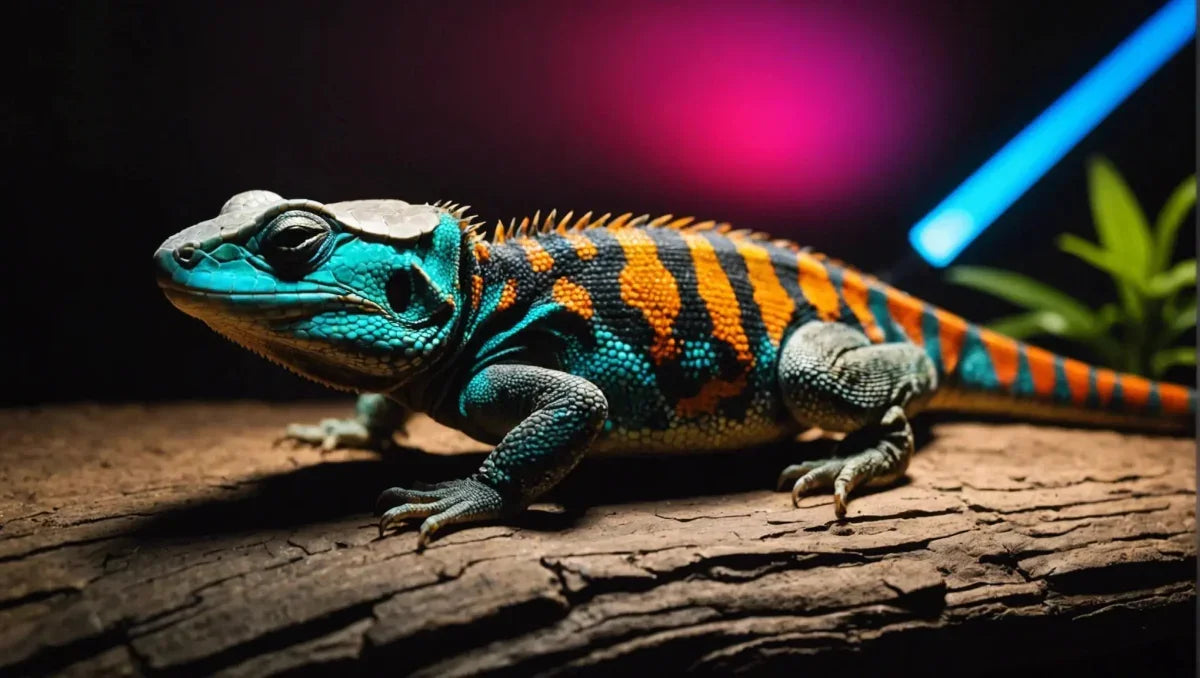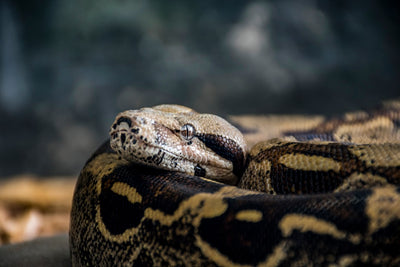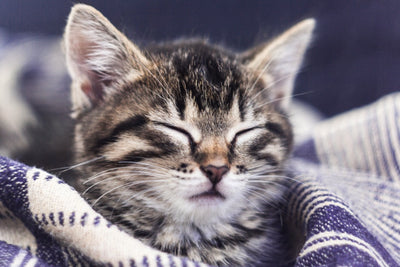Importance of UVB Lamps in Reptile Care

UVB lamps play a crucial role in maintaining the health and well-being of reptiles, making them an essential component of reptile care. These specialized lamps emit ultraviolet B (UVB) radiation, which is vital for reptiles to synthesize vitamin D3, necessary for calcium absorption and overall bone health. Without adequate exposure to UVB light, reptiles are at risk of developing serious health issues such as metabolic bone disease. This makes it imperative for reptile owners to provide the appropriate UVB lighting for their pets. In this context, understanding the importance of UVB lamps in replicating the natural sunlight conditions that reptiles require for their physiological processes is key to ensuring their optimal health and longevity. Therefore, exploring the significance of UVB lamps in the context of reptile care is essential for any responsible reptile owner seeking to create a suitable environment for their scaly companions.
Choosing the Right UVB Lamps for Your Reptile
When it comes to providing proper lighting for your reptile, especially in captivity, selecting the right UVB lamps is crucial. UVB light is essential for reptiles as it aids in the synthesis of Vitamin D3, which is necessary for calcium metabolism and overall health. Here are some key points to consider when choosing UVB lamps for your scaly friend:.
-
Different Reptile Species and Their UVB Requirements: Different reptile species have varying UVB requirements based on their natural habitat and behavior. It's important to research and understand the specific UVB needs of your reptile to provide the appropriate lighting.
-
Considerations When Selecting UVB Bulbs and Fixtures: There are various types of UVB bulbs available in the market, such as fluorescent tubes, compact bulbs, and mercury vapor bulbs. Each type has its pros and cons, so consider factors like UVB output, bulb lifespan, and fixture compatibility when making your selection.
-
Benefits of UVB and UVA Light for Reptile Well-being: UVB light helps reptiles metabolize calcium, preventing issues like metabolic bone disease. Additionally, UVA light is important for stimulating natural behaviors, enhancing appetite, and promoting overall well-being in reptiles.
Choosing the right UVB lamps for your reptile is essential for their health and well-being. By understanding your reptile's UVB requirements and selecting the appropriate bulbs and fixtures, you can create a suitable lighting environment that mimics their natural habitat and supports their overall health.
When selecting UVB lamps, it's crucial to consider the UV Index (UVI) output of the bulb. The UV Index measures the intensity of UV radiation reaching the reptile, helping you ensure that your pet receives adequate UV exposure without overexposure. Different reptiles require different UVI levels, so matching the bulb's output to your reptile's needs is vital.
Moreover, the distance between the UVB lamp and your reptile's basking spot is critical. Placing the lamp too far or too close can affect the UVB exposure your reptile receives. Follow manufacturer recommendations regarding the optimal distance for the specific UVB bulb you choose to ensure your reptile benefits from the light effectively.
In addition to UVB, UVA light is equally important for your reptile's well-being. UVA light stimulates natural behaviors like basking, feeding, and breeding, contributing to your pet's overall mental and physical health. When selecting UVB lamps, opt for bulbs that emit both UVB and UVA wavelengths to provide a holistic lighting solution for your reptile.
Regularly monitor your UVB bulbs for output degradation. Over time, UVB bulbs lose their effectiveness, even if they still emit visible light. Replacing UVB bulbs every 6-12 months, depending on the manufacturer's recommendations, ensures that your reptile continues to receive adequate UV exposure for optimal health.
By carefully selecting UVB lamps that meet your reptile's specific requirements, considering factors like UVI output, distance, and bulb lifespan, you can create a well-rounded lighting setup that promotes your reptile's health, behavior, and overall well-being.
Maintaining Reptile Health with UVB Lamps
Reptiles, like many other animals, rely on exposure to ultraviolet B (UVB) light for their overall health and well-being. In this section, we will explore the importance of UVB lamps in maintaining reptile health, the impact of UVB on reptile behavior and health, how to balance UVB exposure with natural sunlight, precautions and recommendations for using UVB lamps, and the different types of UVB lamps available in the market.
The Impact of UVB on Reptile Behavior and Health
UVB light plays a crucial role in reptiles' ability to synthesize vitamin D3, which is essential for calcium metabolism and overall health. Without adequate UVB exposure, reptiles can develop serious health issues such as metabolic bone disease. Additionally, UVB light influences reptile behavior, including basking, feeding, and breeding patterns. Some reptiles may become stressed or exhibit abnormal behaviors if they do not receive sufficient UVB exposure.
Balancing UVB Exposure and Natural Sunlight
While natural sunlight is the best source of UVB for reptiles, it may not always be feasible to provide access to direct sunlight, especially for indoor-housed reptiles. UVB lamps are a practical solution to ensure that captive reptiles receive the necessary UVB exposure. It is essential to strike a balance between UVB exposure from lamps and natural sunlight to prevent overexposure or deficiencies. Some reptiles may require specific UVB gradients within their enclosure to mimic their natural habitat accurately.
Precautions and Recommendations for Using UVB Lamps
When using UVB lamps for reptiles, it is crucial to select the appropriate lamp based on the species' requirements. Different reptiles have varying UVB needs, so it is essential to research and consult with a veterinarian specializing in reptiles. Additionally, lamps should be replaced regularly according to the manufacturer's recommendations to ensure optimal UVB output. It is also important to monitor the distance between the lamp and the reptile to provide adequate UVB without causing burns or other issues.
Types of UVB Lamps
There are different types of UVB lamps available, including fluorescent tubes, compact fluorescent bulbs, and mercury vapor bulbs. Each type has its advantages and considerations, such as the UVB output range, lifespan, and suitability for different reptile species. It is crucial to choose a lamp that meets the specific UVB requirements of the reptiles in your care.
By understanding the importance of UVB lamps in maintaining reptile health, balancing UVB exposure with natural sunlight, selecting the right type of lamp, and following proper precautions, reptile owners can create a healthy environment that promotes their pets' well-being and longevity.
Proper Usage and Care of UVB Lamps for Reptiles
UVB lamps are essential for reptiles to synthesize vitamin D3, crucial for calcium metabolism and overall health. However, improper usage can lead to health issues. Here are some key points to consider:.
-
Avoiding Disruption of Circadian Rhythm with UVB Light: Reptiles need a consistent day-night cycle. UVB lamps should be turned off at night to mimic their natural environment. Use separate nighttime heating sources to provide warmth without disrupting their sleep.
-
Nighttime Heating Alternatives for Reptiles: Consider ceramic heat emitters or infrared bulbs for nighttime heating. These options provide warmth without emitting light, allowing your reptile to rest properly.
-
Replacing UVB Lamps According to Manufacturer's Guidelines: UVB lamps degrade over time, reducing their effectiveness. Follow the manufacturer's guidelines for replacing UVB lamps to ensure your reptile receives adequate UVB exposure for optimal health.
In addition to the above points, it's crucial to understand the importance of proper positioning of UVB lamps. Placing the lamp at the correct distance from your reptile's basking spot is essential for them to receive the right amount of UVB radiation. Different reptile species have varying UVB requirements, so research your specific pet's needs.
Furthermore, regular monitoring of UVB output is recommended. UVB meters can help you ensure that the lamp is providing adequate UVB levels for your reptile's health. Remember that factors like lamp age, distance, and enclosure design can affect UVB penetration, so periodic checks are necessary.
Creating a basking area directly under the UVB lamp is crucial. This spot should provide both UVB exposure and warmth, allowing your reptile to regulate its body temperature effectively. Additionally, ensure that there are shaded areas within the enclosure where your reptile can retreat to if they need to avoid direct UVB exposure.
When selecting a UVB lamp, consider the UV Index it provides. Different reptiles require varying UV Index levels based on their natural habitat. Research your reptile's specific UV Index needs to choose the right lamp for them.
Lastly, remember that UVB lamps should be shielded to prevent direct contact with your reptile and to avoid accidental burns. Regularly clean the lamp and its surroundings to maintain optimal UVB output.
By following these guidelines and incorporating additional care practices, you can ensure that your reptile thrives in captivity with the proper usage of UVB lamps.
UVB lamps play a crucial role in maintaining the health and well-being of reptiles by providing essential ultraviolet light for their physiological processes. Ensuring that your reptile receives adequate UVB exposure is vital for their overall health, including calcium metabolism and proper bone development.
For a wide selection of habitats, ornaments, and UVB lamps to meet your reptile's needs, visit the. Zilla Micro Reptile and Amphibian Habitats Arboreal Page on Talis US. Explore their range of products designed to cater to reptile and amphibian enthusiasts, offering high-quality supplies to create a comfortable environment for your beloved pets.
Take the next step in providing the best care for your reptile by checking out the products available at. Zilla Micro Reptile and Amphibian Habitats Arboreal . Your reptile will thank you for it!.






